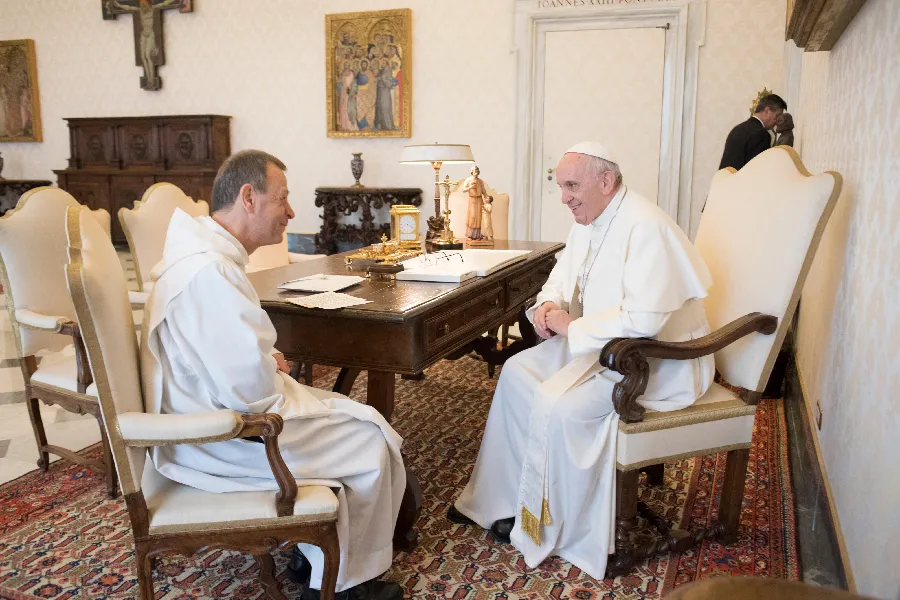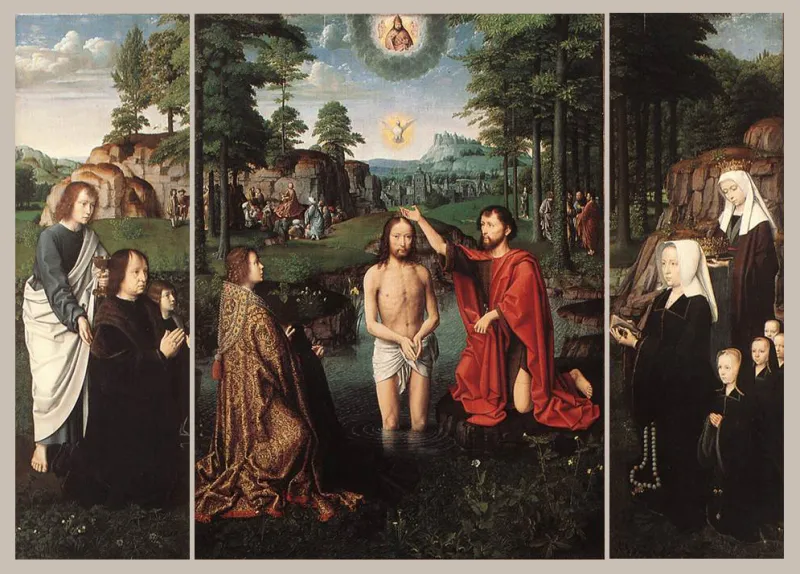
Rome Newsroom, Apr 7, 2021 / 02:30 am (CNA).- The prior of Taizé has said that his community sees how young people are longing to meet together again in Christian fellowship as France and other European countries remain under strict lockdowns this spring.
Br. Alois Leser has led the Taizé Community for more than 15 years. The ecumenical monastic community-based in a rural area in Burgundy, France, is known for drawing tens of thousands of young people together each year to live and worship together.
He said that the coronavirus pandemic had caused the community some difficulty, but also provided the brothers with more time to reflect and a renewed perspective on the source of their hope.
“I think as Christians we are forced in this time to come back really to our faith and to see that our hope is not just a hope that things will be better or things will be easy,” Br. Alois told EWTN.
“It’s the hope in the resurrection that comes from the resurrection of Jesus that opens a new horizon, a new horizon beyond all situations, so also in this time of pandemic … we believe that there is another horizon which is given by the resurrection of Jesus,” he said.
With tight coronavirus restrictions still in place in much of Europe, the prior said that the community had turned to the internet to host meetings with young people and sent groups of brothers to the suburbs of Paris to live in solidarity with young people during “this difficult time.”
“We feel how much they are longing to meet together,” Br. Alois said. “They are very much connected through [the] internet, but this does not replace the personal meetings.”
The prior met privately with Pope Francis before Easter. During the audience, he told the pope how Taizé was carrying out its ministry to young people during the pandemic and how the “small community of Taizé is living in the Church, in the whole universal Church.”
Br. Alois is a Catholic, whereas his predecessor Br. Roger Schütz, who founded the community in 1940, was born to a Swiss Protestant family. The community gathers to pray together three times a day following a structure of prayer similar to the Divine Office.
The Taizé Community is well known in particular for its distinctive music characterized by repetitive chants of lines from Sacred Scripture.
Br. Alois has written a number of songs for Taizé in recent years. He said that the repetition in Taizé’s songs “can stimulate an inner life and inner prayer” that brings about “communion among many.”
One of the songs written by Br. Alois is “In Manus Tuas, Pater,” which contains a chant inspired by Jesus’ words on the cross, which were themselves taken from the Psalms and are repeated by the Church in the Compline (Night Prayer): “Into your hands I commend my spirit.”
“We sing it in Latin: ‘in manus tuas commendo spiritum meum,’ and we repeat it,’” he said.
“I feel this prayer is so important that we abandon ourselves really to God, that we really trust, even in very difficult situations when life is not easy but that we express also in these situations our trust in God, even if we have the impression that God does not just help … but we continue to believe that He is present,” Br. Alois said.
“This is one example and we are glad that we can have these repetitive songs in Taizé because people don’t have to read complicated texts in different languages. One sentence you have to learn in a language even that you do not speak. And you can repeat it and it creates communion among all those who are present.”
Br. Alois explained that in the beginning many of the songs and prayers in the community were in French. But as more international pilgrims began coming, they found that Latin was a language that brought unity in prayer.
He said that there is a long tradition of repetitive prayer and meditation in the Catholic Church, with the prayer of the rosary and the Litany of the Saints as examples.
The Taizé leader said that he prayed every day for victims of clerical abuse, aware that his own community had received allegations of abuse.
In 2019, Br. Alois issued a statement that the community had received five allegations of abuse committed between the 1950s and the 1980s by three of its members — two of whom have been dead for more than 15 years.
The prior told EWTN that he felt a great sense of responsibility for all of the young people welcomed each year by his community and that changes had been made to the Taizé brothers’ formation, along with the provision of training for volunteers.
“We have to deepen the beauty of our commitment of celibacy also, which is not that we love less than other people but that we love in a different way,” he said.
While he acknowledged that the coronavirus pandemic has made it hard to plan for the future, Br. Alois has said that he hopes that Taizé’s annual European meeting will be able to take place in person in Turin, northern Italy, at the end of this year after last year’s meeting was canceled.
If you value the news and views Catholic World Report provides, please consider donating to support our efforts. Your contribution will help us continue to make CWR available to all readers worldwide for free, without a subscription. Thank you for your generosity!
Click here for more information on donating to CWR. Click here to sign up for our newsletter.




Leave a Reply